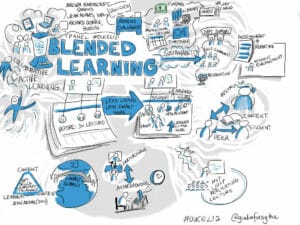More than 3,000 Singaporeans and Singapore Permanent Residents have been trained in 5G and related technologies in the last year, according to statistics provided by the Singapore 5G & Telecoms Academy (5G Academy), as part of the Infocomm Media Development Authority’s (IMDA) plans to roll out 5G coverage nationwide by 2025. The 5G Academy was established to assess industry demands and talent availability, as well as to cultivate a pool of 5G-ready experts.
IMDA tasked the National University of Singapore (NUS) and Singapore Polytechnic (SP) with establishing and managing the 5G Academy, which now offers over 700 short courses and academic programs to build 5G-ready talent on its website. The courses and programs are mapped to a framework that organizations and people can use as a reference in their upskilling journey, and they are offered by various institutions in Singapore.
Singapore has long believed that its most valuable competitive edge is its people. Being 5G-ready is a significant step forward for Singapore as it works to become a leading SMART nation, motivated by a desire to develop sophisticated digital solutions that may alter our industries, economy, and society.
5G is a new worldwide wireless standard that stands for fifth-generation mobile networks. It will provide much better connection and user experiences than earlier 3G and 4G technologies, with faster speeds, reduced latency, and more capacity. The University’s role in the 5G Academy is to serve as an enabler, collaborating with all relevant parties to strengthen the links between education and training, as well as employer and enterprise talent needs, in order to bring about transformational changes as a result of the deployment of 5G technology in our industries.
Because 5G technologies are so different from the existing setup, manpower development in the field of 5G and associated technologies is critical. Individuals that work in support roles in the sector, such as product experts and project managers, as well as users, will need new knowledge and abilities to harness and use 5G goods and services. With the IMDA aiming to cover 50% of Singapore by the end of 2022, the 5G Academy will be stepping up its efforts to support upskilling and reskilling in partnership with its partners.
It intends to launch a number of new initiatives, including partnerships with 5G testbeds, increased engagement with 5G stakeholders such as training providers, employers, and small and medium-sized businesses, programs to help businesses kickstart and ramp up 5G talent development, and the launch of a 5G Readiness Index to help businesses better gauge awareness of and willingness to adopt 5G. It will also try to give market knowledge and insights to stakeholders in order to help them design skills frameworks and training courses and programs.
NUS has officially launched two new digital platforms to prepare students for the working world: Internship-As-A-Service (IAAS) and conNectUS. IAAS fulfills the demands of business partners for specialized expertise while also expanding the scope of NUS students’ hands-on internship and employment possibilities. As they shape their professional paths, conNectUS allows students to strengthen their ties with the University’s alumni and tap into their wealth of industry knowledge and expertise.
The platforms support graduates’ holistic development, particularly in the areas of interdisciplinary education, internship opportunities, intellectual flexibility, and diversity of skill sets, as well as instill the value of lifelong learning in graduates and alumni, against the backdrop of NUS’ strengthening commitment to preparing graduates for the workplace of the future.









